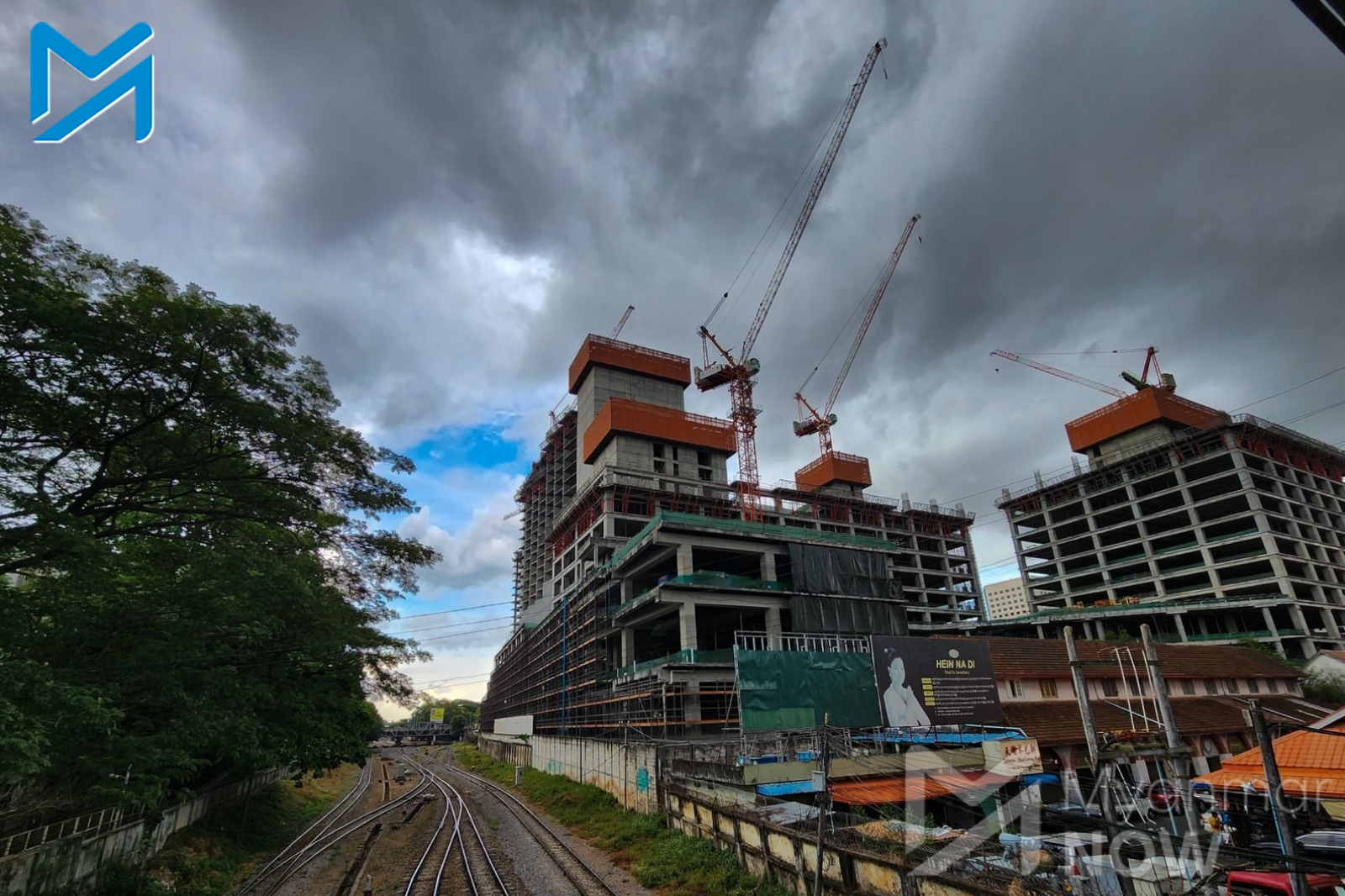
The construction of a multi-use complex in the colonial era Burma Railway Company in downtown Yangon is resuming after being suspended following the February 2021 coup, according to a source close to one of the companies involved.
The more than US$700m Yoma Central Project is spearheaded by business tycoon Serge Pun’s Yoma Strategic Holdings, alongside First Myanmar Investment (FMI), which he also owns.
When completed, it will include a shopping centre, five-star hotel, office building and luxury apartments in and around the building which once served as the country’s main railway office.
“They are going to restart around July,” the anonymous company source told Myanmar Now, noting that much of the construction of the site, located on the corner of Bogyoke Aung San and Sule roads, had already been completed in the years prior.
Serge Pun—also known as Thein Wai—received permission to undertake the project in 2016, when a “Build Operate Transfer” agreement was signed with Myanmar’s then transport and communications ministry for a 32-year lease of the site. Construction started the following year, and was meant to last four years, ending with four high-rise buildings surrounding the old railway headquarters, according to a sketch released by FMI.
Though it had been gaining momentum, Yoma Strategic Holdings announced in May 2021—around three months after the coup—that due to the uncertainty surrounding Myanmar’s economic landscape, it was suspending its work on the site.
The International Finance Corporation (IFC) and the Asian Development Bank (ADB) each invested five percent of the total cost of the project through loans; once these are “resolved,” the renovations will continue, according to minutes from a March meeting of Yoma Strategic Holdings.
Part of the Yoma Central Project involves transforming the railway building into a five-star hotel under Peninsula Yangon, which itself is a joint venture between FMI, which owns a 30 percent stake, and the Hong Kong and Shanghai Hotels Company, which claims a 70 percent stake. The hotel investment amounts to $144m.
The project also includes the separate construction of a shopping mall, apartments, and a high-end office setting, with this section of the project undertaken by a coalition of investors collectively called Meeyahta Development Limited. Yoma and FMI each hold a 30 percent stake in this section of the initiative. Another 30 percent is held by the joint venture MMJ Yangon Development, which includes two Japanese entities—Japan Overseas Infrastructure Investment (JOIN), which is under the government, and Mitsubishi.
JOIN did not respond to Myanmar Now’s request for comment on the project.
The remaining 10 percent is held by the IFC and ADB.
The total investment in the multi-use part of the project is more than $574m, bringing the total to $718m.
IFC, which is a member of the World Bank Group, said it has temporarily put a hold on disbursements in Myanmar, but remains involved in the Yoma Central Project, despite sellings it 4.5 percent share in Serge Pun’s Yoma Bank last December.
ADB has said it is “closely monitoring the situation” around the project.
The lease agreed to between the companies and the former government involved $60,000 in fees annually, and another $9m in land use premiums. Now that the project is nearing completion under the current junta, human rights advocates have raised questions about whether these sums will go to the military council.
Spokesperson for covert activist group Justice For Myanmar Yadanar Maung described the resumption of the Yoma Central Project as a “serious concern” because of whether it will “help finance the illegal military junta’s ongoing war crimes and crimes against humanity.”
“The company made the right decision in suspending it following the military’s coup attempt and since then, the junta’s campaign of terror has only intensified,” she explained. “Yoma Strategic Holdings, ADB, IFC and all other investors and financiers must uphold their international human rights responsibilities, block lease payments to the junta and release their human rights due diligence.”



